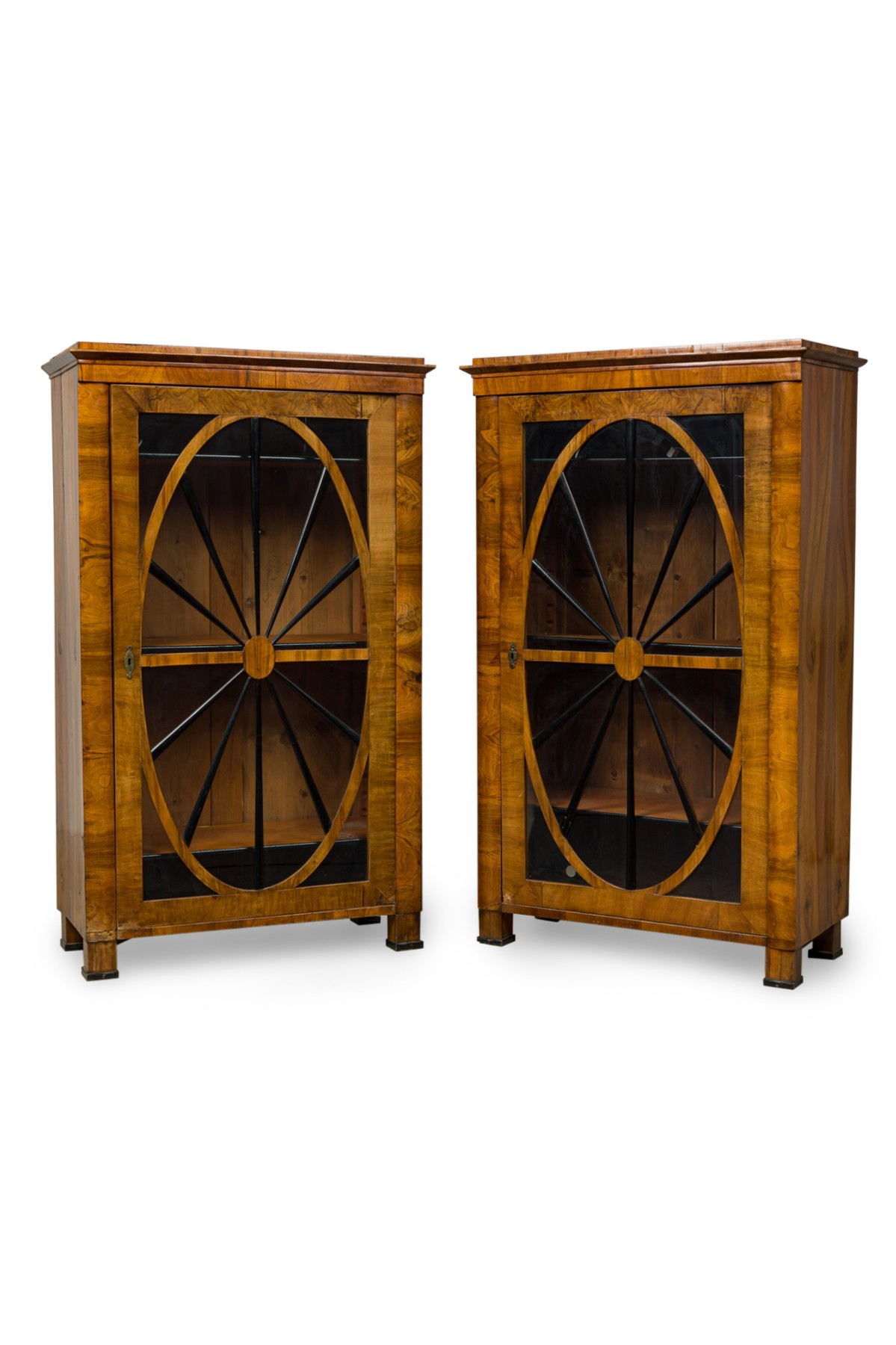X
{{ modalTitle }}
PLEASE FILL IN THE REQUIRED FIELDS.X
X
{{ modalTitle }}
Choose one of the options below.X
ITEM SUCCESSFULLY
ADDED TO PROJECT
Austrian Biedermeier Walnut Ebonized Bookcase
 Biedermeier
Biedermeier German & Austrian
German & Austrian Cabinets & Case Goods, Office/Library
Cabinets & Case Goods, Office/Library Etagere/Bookcase/Vitrine, Storage
Etagere/Bookcase/Vitrine, Storage
Newel Gallery
306 East 61st Street, 3rd Floor
NY - 10065
 (212) 758-1970
(212) 758-1970
Austrian Biedermeier Walnut Ebonized Bookcase

Newel Gallery
306 East 61st Street, 3rd Floor
NY - 10065
 (212) 758-1970
(212) 758-1970
 Cabinets & Case Goods, Office/Library
Cabinets & Case Goods, Office/Library Etagere/Bookcase/Vitrine, Storage
Etagere/Bookcase/Vitrine, StorageBiedermeier
A style of furniture produced in Austria and Germany during the first half of the 19th century. Inspired by French Empire and German painted peasant work. The name was borrowed from an imaginary cartoon character called Papa Biedermeier, an uneducated country gentlemen who considered himself a connoisseur of fine and industrial arts. Simple marquetry patterns were used with pressed brass ornaments of Greek inspiration as well as painted motifs of wreaths, urns, and floral, animal and human forms. Woods used were mainly fruitwoods, maple, mahogany and birch.
Commode
French form mimicking an English chest-of-drawers, dating from the mid 17th-century and very popular in the 18th century. Fashion greatly determined variances in styles and decoration, but commodes generally are wider than they are tall.
Walnut
Walnut is a type of wood that can be identified by its rich brown colors and firm and even texture. Walnut is considered one of the finest woods due to its beautiful and unique coloring, strength, and ability to be shaped. Walnut is used for both lumber and veneer.
Veneer
A wood finishing technique in which thin sheet of fine wood is applied to a the surface of a coarser wood or other structural material for decoration. Veneer is used to give furniture pieces a finer, more pleasing appearance. It was first used in ancient Egypt, classical Greece, and Rome, but did not appear again until the 17th Century in the Netherlands.
Biedermeier
A style of furniture produced in Austria and Germany during the first half of the 19th century. Inspired by French Empire and German painted peasant work. The name was borrowed from an imaginary cartoon character called Papa Biedermeier, an uneducated country gentlemen who considered himself a connoisseur of fine and industrial arts. Simple marquetry patterns were used with pressed brass ornaments of Greek inspiration as well as painted motifs of wreaths, urns, and floral, animal and human forms. Woods used were mainly fruitwoods, maple, mahogany and birch.
Commode
French form mimicking an English chest-of-drawers, dating from the mid 17th-century and very popular in the 18th century. Fashion greatly determined variances in styles and decoration, but commodes generally are wider than they are tall.
Walnut
Walnut is a type of wood that can be identified by its rich brown colors and firm and even texture. Walnut is considered one of the finest woods due to its beautiful and unique coloring, strength, and ability to be shaped. Walnut is used for both lumber and veneer.
Veneer
A wood finishing technique in which thin sheet of fine wood is applied to a the surface of a coarser wood or other structural material for decoration. Veneer is used to give furniture pieces a finer, more pleasing appearance. It was first used in ancient Egypt, classical Greece, and Rome, but did not appear again until the 17th Century in the Netherlands.
Biedermeier
A style of furniture produced in Austria and Germany during the first half of the 19th century. Inspired by French Empire and German painted peasant work. The name was borrowed from an imaginary cartoon character called Papa Biedermeier, an uneducated country gentlemen who considered himself a connoisseur of fine and industrial arts. Simple marquetry patterns were used with pressed brass ornaments of Greek inspiration as well as painted motifs of wreaths, urns, and floral, animal and human forms. Woods used were mainly fruitwoods, maple, mahogany and birch.
Commode
French form mimicking an English chest-of-drawers, dating from the mid 17th-century and very popular in the 18th century. Fashion greatly determined variances in styles and decoration, but commodes generally are wider than they are tall.
Walnut
Walnut is a type of wood that can be identified by its rich brown colors and firm and even texture. Walnut is considered one of the finest woods due to its beautiful and unique coloring, strength, and ability to be shaped. Walnut is used for both lumber and veneer.
Veneer
A wood finishing technique in which thin sheet of fine wood is applied to a the surface of a coarser wood or other structural material for decoration. Veneer is used to give furniture pieces a finer, more pleasing appearance. It was first used in ancient Egypt, classical Greece, and Rome, but did not appear again until the 17th Century in the Netherlands.













